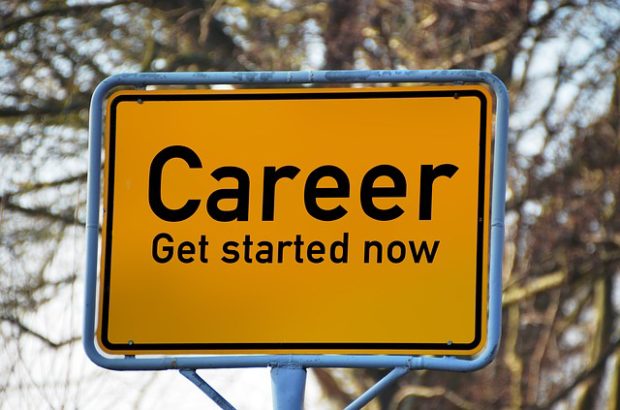She Works Hard for the Money: How to Put Your Education to Work for You

Here’s a truth nugget that will surprise no one: sometimes things don’t go the way we hope or plan for. This is evident in every area of life, including the professional sphere. But regardless of — whether you have a graduate degree or went straight from your bachelors to your chosen field — you don’t have to feel boxed in by what you originally went to school for.
Several years ago Forbes contributor Caroline Ceniza-Levine wrote, “There is really only one good reason to quit your job: you should quit your job when quitting is the next step to a better life.”
That’s going to look different for different women. But it is likely to boil down to finding the right balance in terms of both professional and personal expectations.
If You Need a Change
There are multiple reasons you might hate your job, and if you do why not consider moving in a different direction? Assess whether or not your current situation can be altered, first, and then go from there.
If you’re burnt-out, is it something that can be altered; are there changes that can be made right where you are?

Similarly, if you feel you’re not being compensated fairly, speak up. Job application experts often cite research that proves, “employees with access to better benefits packages experience higher job satisfaction, miss fewer workdays, and are less likely to resign.” Before you move on, tell them what they likely already know.
Making your education work for you means seeing all the potential held within both your innate skill set and your schooling, and knowing how to empathize them in alternative career paths if you aren’t satisfied where you are.
Here are a couple examples to showcase how you can put your education to work for you — regardless of whether your plans and career path change.
If You Have an Education Degree
Teachers are, obviously, an educated group: over half hold graduate degrees. Plus, over three-fourths of teachers in the United States are women. But, pursuing a graduate degree in teaching can be end up being a vehicle to take you far beyond the classroom, if that’s what you want.
“In addition to their knowledge about student learning and development, they often have great communication and presentation skills, high levels of creativity, and lots of experience in dealing with difficult situations – emotional, pastoral, practical and logistical,” notes Corinne Mills for The Guardian.
Consider:
- A museum educator has the same opportunities to teach, but they do so in a changing, dynamic atmosphere. And they aren’t bound by grades, instead they’ve got a rotating classroom, always full of fresh eyes.
- A education liaison is a professional who works as the go-between. Depending on the job, they partner with organizations to do things like hiring the right teachers for the right programs and they often work with colleges and universities in places like admissions departments and career planning.
If You Have a Writing or Marketing Degree
If you came out of school with a bachelor of arts, then you know that there are often fairly narrow career lanes that people expect you to remain in. However, fields of study like creative writing or marketing prove that you’ve got what it takes to think critically and analytically, all the while maintaining an artistic edge.
For example:
- You could build a subscription-based business from the ground up that focuses on whatever you want to focus on, like writing or the arts.
- As an entrepreneur you could find alternative work like advising nonprofits or charities, or help start-ups launch new products.

Own Your Assets
On a certain level, the professional woman is limited most significantly by the limits she is willing to accept. The best way to flesh out how your education can be put to work for you is to assess what your assets are and how they can be applied across specific professional fields.
This is not a call to have unrealistic expectations, but merely a reminder that if you’re not happy with where you’re at, you shouldn’t overlook opportunities just because they seem outside your wheelhouse.
Several years ago a study was released that showed only 27 percent of college graduates are working in a field directly related to their major. It just goes to show that your ability to gain experience in and out of the classroom, to network enthusiastically, and to pursue what you want are just as important as the degree you earned.
This guest post was authored by Brooke Faulkner




